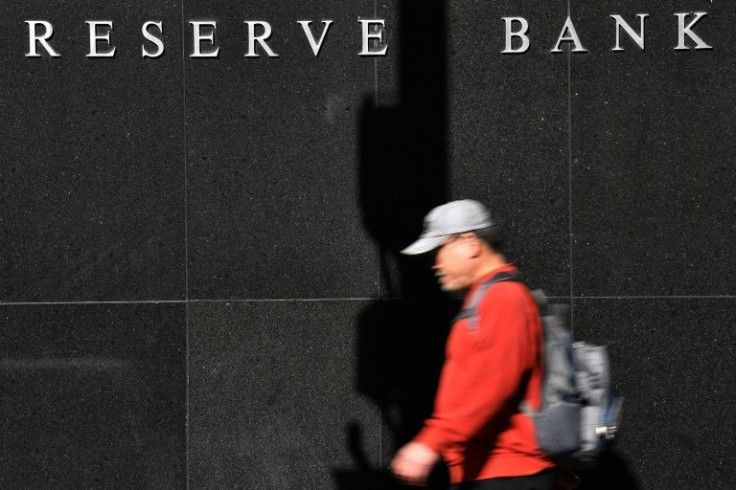Scott Morrison In Trouble With Bleak Poll Prospects

Incumbent Australian Prime Minister Scott Morrison received a blow on May 3 when the country's central bank raised interest rates in the middle of a tough election campaign.
The move by the Reserve Bank of Australia (RBA) will further hike living costs, thereby putting spokes into Morrison's poll prospects.
The apex bank has increased interest rates to 0.35 percent from the record low of 0.1 percent to arrest the surging inflation.
With inflation rising twice as fast as wages, Morrison's Liberal-National coalition, which maintains a mere one-seat majority in the lower house of parliament, is under heavy pressure as the opposition Centre-left Labor is ahead in opinion polls.
Trailing ahead of the May 21 national polls, Morrison, 30th prime minister of the country, maintained that Australians were expecting the hike in interest rates for some time.
The 54-year-old premier, however, admitted that it will make life miserable for some.
Morrison, a former managing director of the state-funded Tourism Australia, has admitted that cost of living pressures was real but added that the opposition Labor Party had "no magic pen" to make people's wages go up.
The polls will decide who will govern Australia, where voting is mandatory, for the next three years. The failure to vote in the country of 27.10 million can result in a fine and potentially a day in court.
The hike in interest rates will force millions of Australians to shell out more on their mortgages for the first time since 2010.
The last time when the RBA hiked interest rates during the elections was in 2007; and the then Prime Minister, John Howard, was uprooted from power. Morrison, however, dismissed parallels with Howard.
Morrison also tried to put on a brave face, saying that voters will understand that the rate hike was due to global developments and not the making of his government.
When asked whether he had just lost the election, Morrison replied in the negative and said that Australia was better prepared to face it and blamed it on the ongoing conflict in Ukraine and the COVID-19 lockdown in China.
Morrison's personal integrity has also become a poll issue. There have been leaked messages from his own party which called him a "horrible horrible person" and Barnaby Joyce, his own deputy, had termed him a hypocrite and a liar.
In recent opinion polls, the Labor Party has emerged as the most trusted party to manage the cost of living pressures on Australians.
The Guardian Essential poll of 1,500 respondents stated that the Labor retains a lead over Morrisons' coalition of 49 percent to 45 percent on a two-party preferred plus measure. The Labor has a strong support base in Victoria and among 18 to 34-year-olds, the poll said.
In the polls, the Greens managed to secure 10 percent, the United Australia Party 4 percent, One Nation 3 percent and independents parties 5 percent
With most polls going against Morrison's conservative coalition, the prime minister has accused China to highlight his government's national security credentials. According to him, China's security deal with the nearby Solomon Islands, which is less than 2,000 km from Australian shores, was timed to influence the elections.
We are aware of the Chinese influence that seeks to have in this country, Morrison told reporters in the island state of Tasmania.
The opposition Labor Party termed the deal as a national security failure by Morrison's government.
Labor leader Anthony Albanese is betting big on climate change, the gender pay gap, electric vehicles and the "made in Australia" industry policy.
At a poll rally in Perth, capital of Western Australia, on May 1, 59-year-old Albanese pledged to spend $1 billion on the local industry in resources and manufacturing. Vowing to bring manufacturing back home, Albanese said a Labor government will develop new products in Australia from its natural resources.
When Morrison pledged to cut the cost of medicines by $10 per script, Albanese offered a slightly better deal with a proposal with a cut of $12.50 per script.
Albanese has promised cheaper electricity, child care, mortgages and medicines and promised to generate 604,000 jobs.
A Labor government would also shell out $39.3 million to build a national network of electric vehicle charging stations, he said.
A May 1 opinion poll showed the Greens gaining ground in this month's elections, and increasing its primary vote share by 15 percent from 10 percent in 2019.
It hopes to win at least five lower house seats and hopes to pick up three more Senate seats with this month's polls.
But for the Greens, a hung parliament ensures maximum benefits from a minority Labor government. The Greens and Labor have a record of working together.
In the case of a hung house, the Greens may demand a halt to all new coal, gas and oil projects and would also push for a coal export levy to fund clean export industries.
The main battle for attention is taking place on social media. In the last month, more than $6 million was spent by political parties to influence Australians' opinions on a range of issues.
Between April 23 and 29, political parties, lobby groups and other organizations coughed up $232,922 to Facebook's parent company, Meta, to feature adverts on its platforms.
























